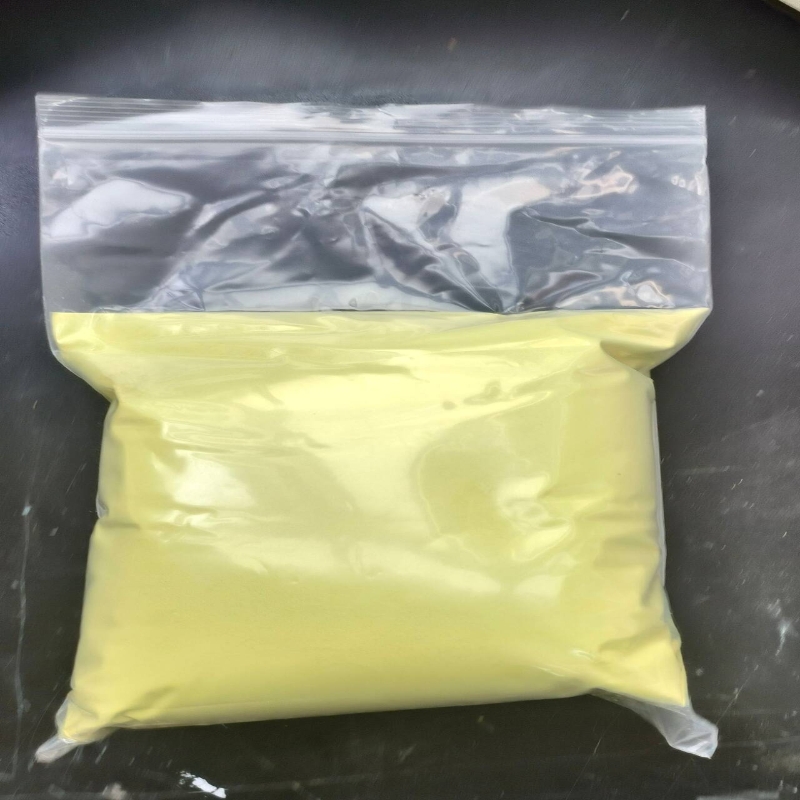-
Categories
-
Pharmaceutical Intermediates
-
Active Pharmaceutical Ingredients
-
Food Additives
- Industrial Coatings
- Agrochemicals
- Dyes and Pigments
- Surfactant
- Flavors and Fragrances
- Chemical Reagents
- Catalyst and Auxiliary
- Natural Products
- Inorganic Chemistry
-
Organic Chemistry
-
Biochemical Engineering
- Analytical Chemistry
- Cosmetic Ingredient
-
Pharmaceutical Intermediates
Promotion
ECHEMI Mall
Wholesale
Weekly Price
Exhibition
News
-
Trade Service
With the development of several new crown candidate vaccines entering the phase 3 clinical stage, the safety of candidate vaccines has also become a topic of public concern.
articles have mentioned that the antibody dependence enhancement (ADE) effect may be a potential hazard of the new crown vaccine.
recently, a patient with a second infection with the new coronavirus had more severe symptoms at the time of the second infection than the first, and there was speculation that this would not be the role of ADE.
have long been concerned about the ADE effect and use it as an important indicator to consider vaccine safety.
Recently, members of the U.S. Working Group on Accelerated COVID-19 Therapeutic Interventions and Vaccines (ACTIV) published an in-depth review in the scientific journal Science Translational Medicine, reviewing previous cases of immuno-related diseases in viral infection and vaccine development, and exploring the safety prospects of the new crown vaccine.
article, the authors define immune-associated enhanced disease as a disease that is more severe in patients due to an existing immune response to a particular pathogen.
it includes antibody dependence enhancement (ADE) effects, which are enhanced by disease symptoms mediated by pathogen-specific antibodies.
For example, when dengue virus infection, the body's immune system produces specific antibodies that, by combining with antigens on the virus, mediate the virus to be devoured and degraded by macrophages and other immune cells, thus protecting it.
However, if a patient is infected with another sero-type dengue virus, the pre-existing median antibodies in the human body may not only not be effective in producing a memorization effect, but its Fc end can help the virus enter the cells that express the Fc gamma receptor by combining with the Fc gamma receptor on the cell.
the immune escape mechanism of the virus allows the virus to continue to replicate and produce new viruses in these cells.
in addition to antibody-mediated pathogens breeding in more cells, the immune response to dengue virus infection (Photo source: Reference: References, CREDIT: ALICE KITTERMAN/SCIENCE TRANSLATIONAL MEDICINE) may also lead to enhanced disease in other ways.
example given by the researchers is the use of the Formarin inactivated respiratory syncytial virus (RSV) vaccine in the 1960s.
study found that two children developed a fatal RSV infection after being vaccinated against formarin inactivated RSV, and their symptoms were associated with the activation of the supplement path.
patients develop immune complex formation and build up in the lungs, while neutral granulocytes and eosinophils are immersed in the lungs.
these symptoms were consistent with CD4-positive T-cell reactions in favor of Th2. Further studies of this RSV vaccine by
-Th2-prone CD4-positive T-cell reaction-mediated vaccine-related enhancement diseases (Photo source: References, CREDIT: ALICE KITTERMAN/SCIENCE TRANSLATIONAL MEDICINE) show that the process of formarin inactivation alters the appearance of specific proteins on the RSV virus that stimulate antibody immune responses, resulting in a decrease in the neutrality of vaccine-stimulated antibodies.
similar to ADE conditions that occur in dengue virus infections, low-level antibodies may instead increase the severity of the disease.
the researchers also note that enhanced disease has not been observed in all viral infections or vaccine use.
, for example, influenza viruses are quite diverse and most people in the world are partially immune to them.
years of epidemiological studies have shown that although most people have meso-limited antibodies to influenza viruses, they rarely produce disease-enhancing effects.
, inactivated influenza vaccines do not significantly increase the risk of disease enhancement, although they target antigens that are not exactly the same as those carried by the virus during the flu season.
addition, inactivated polio vaccine-inspired meso-antibodies, although not strong in some sero-type viruses, have not been found to enhance the disease.
, vaccines developed through inactivated viruses do not have a natural tendency to stimulate harmful immune responses.
the enhanced disease of coronavirus in animal models, we had experienced outbreaks of SARS and MERS viruses before the outbreak of the new coronavirus.
researchers have developed a variety of animal models that simulate SARS-CoV-1, MERS-CoV, and new coronavirus infections, and have conducted studies in animal models to enhance disease.
, the new coronavirus candidate vaccine has not been found in animal models to cause enhanced disease.
in the development of the SARS-CoV-1 and MERS-CoV vaccines, however, some vaccinated animals were found to have immunopathological characteristics at the cellular level after drug testing.
in many cases, lung immersion at the cellular level does not cause significant respiratory symptoms or disease.
study of immunopathological characteristics in SARS-CoV-1 and MERS-CoV animal models has not yet reached definitive conclusions (see table below).
that the immune response to Th2 may have a protective effect, but also a disease-enhancing effect.
, the Th17-mediated mechanism may be a pathogenic mechanism.
Although ADE-mediated SARS-CoV-1 and MERS-CoV virus infections have been observed in in-body studies, it has not been fully clarified whether vaccine-mediated enhanced diseases occur after animals are vaccinated against MERS-CoV or SARS-CoV-1.
data sources: Resources, what does the results of the drug Mindencond Content Team's drawing vaccine and serum clinical trial results for rehabilitators reveal to immuno-mediated enhancement diseases? In Phase 1 clinical trials, MERS-CoV candidate vaccines based on DNA vaccine technology and modified pox virus Ankara strain (MVA) vectors showed good safety.
vaccine using chimpanzee adenovirus vector (ChAdOx1) to express MERS-CoV pyrethroid protein was also found to have no serious adverse reactions during a 12-month follow-up of 24 participants.
, no immuno-mediated enhanced diseases have been observed in clinical trials of inactivated SARS-CoV-1 vaccines and DNA vaccines that express SARS-CoV-1 prickly proteins.
re-infection after vaccination has also not been reported in these clinical trials.
so far, there have been very few serious adverse reactions in the clinical results of the new crown candidate vaccine Phase 1.
, however, the design of these early Phase 1 clinical trials has made it impossible to prove with any indication whether serious adverse reactions are related to the new crown candidate vaccine.
, Phase 3 clinical trials have been conducted in many countries around the world.
these trials will provide direct evidence of whether the vaccine candidate will enhance the disease after vaccination.
strategy to assess the potential risks of antibodies and other antibodies to the new coronavirus is to test whether the use of plasma from the recovered person enhances the patient's disease.
, rehabilitation plasma has been used in controlled clinical trials to treat more than 35,000 patients with severe COVID-19.
results showed that antibody dosing in the form of infusions of plasma did not worsen the disease.
, randomized controlled trials to test plasma therapy in rehab are under way.
what considerations should be taken into account for immuno-mediated enhanced diseases in vaccine development? A review of previous studies showed that while disease enhancement and immunopathological characteristics could be observed in preclinical studies, no consistent pathogenesies or immunos markers associated with enhanced disease have been found, the researchers said.
, there is no evidence that the results of coronavirus infections in in-body or animal models can reliably predict results in humans.
, Phase 3 clinical trials, which include a sufficient number of people, remain the best way to test whether a vaccine has disease-enhancing effects.
The ability to detect vaccine-related disease enhancement effects in Phase 3 clinical trials depends on three factors: how often disease-enhancing effects occur, when disease-enhancing effects occur, and whether we can distinguish disease-enhancing effects from natural infections of similar severity.
the current lack of reliable biomarkers and the complexity of COVID-19's symptoms make it more difficult to distinguish between the two.
, however, if the frequency of serious illness occurs more frequently than expected at certain age groups, this may be a potential signal to enhance the disease.
current Phase 3 clinical trials have taken these factors into account, and participants in Phase 3 clinical trials will be followed up with a one-year safety study.
guidelines for emergency use authorization (EUA) applications for new crown vaccines, released by the FDA on Friday, also set out safety targets for candidate vaccines.
It is true that there is theoretically a situation in which new crown vaccinators re-infect with the new coronavirus with an increased frequency of disease, or when the time period is outside the clinical trial cycle, resulting in a situation that cannot be detected in clinical trials."
this requires regulators to develop strict post-approval monitoring procedures to monitor adverse events after approval of new crown vaccines.
researchers also point out that because there are quite a few new crown candidate vaccine development projects in the world, they will produce very large amounts of clinical data related to different vaccines and placebo groups.
this provides an opportunity for researchers to conduct meta-analyses of several different clinical trials to identify more rare vaccine-related enhanced diseases.
: . . . FDA Briefing Document Vaccines and Related Biological Products Advisory Committee Meeting October 22, 2020. Retrieved October 20, 2020, from Vaccines and Related Biological Products Advisory Committee October 22, 2020 Meeting Draft Roster. Retrieved October 20, 2020, from Why this week's meeting of an FDA advisory panel on Covid-19 vaccines matters. Retrieved October 20, 2020, from As FDA sets the stage for the first Covid-19 vaccine EUAs, some big players are asking for a tweak of the guidelines. Retrieved October 20, 2020, from Roster of the Vaccines and Related Biological Products Advisory Committee. Retrieved October 20, 2020, from . . . . . . . . . . . . . . . . . . . . . . . . . . . . . . . . . . . . . . . . . . . . . . . . . . . . . .




![2-(Hydroxymethyl)benzo[b]thiophene](https://file.echemi.com/fileManage/upload/cas/593/e79a972f-b55d-4dc1-9113-841c417e0a89.png)


